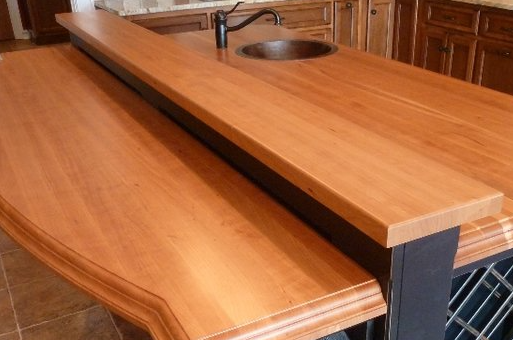 What kind of wood would you use for countertops?
What kind of wood would you use for countertops? Although, due to their abundance and sustainability, maple and bamboo may be the most common varieties, many hardwoods are equally well suited for countertops. The look and use or regional tastes have a great deal to do with it. Local woods will perform just as well as black walnut or cherry, such as mesquite in the Southwest. Many FSC-certified or reclaimed woods are also good options and follow sustainability requirements for LEED certification. In general, softwoods like pine are not ideal or high-performing.
What makes wood a good material for countertops?
It is readily available and sustainable and comes in a range of colors, species, shapes and finishes that are endless. It is colder to the touch than any other surface on the counter. A carpenter can quickly cut, manufacture, and build it, so it can be less costly and quicker to obtain than stone and solid surface alternatives. With age, the color and character of wood countertops can improve. And with relative ease, it can be sanded, refinished, and touched.
What are the pros of it?
On wood countertops, you can cut and eat and do almost everything. It's much quieter; if pans or glasses are put on it, you won't hear banging or clinking sounds (and breakage is less likely should glasses or other items fall). Wood is not as some stones are, susceptible to citrus and many plants are naturally heat-resistant. Wood countertops also provide natural anti-bacterial advantages when correctly sealed. Finally, wood countertops are as comfortable in modern kitchens as they are in traditional ones, with so many looks-striped, end-grain cubes, solid tops with 'live edge' detailing.
His drawbacks?
The best finishes are the natural ones that need to be oiled 2-3 or more times a year. There are some people who don't like so-called live endings. Wood around sink areas and after spills must also be kept dry.
What about price?
Well-manufactured solid butcher block or wood countertops are manufactured to order and use long-wear dried and sorted high-grade woods. To prevent damage from water or heat, all surfaces must be carefully finished with several coats of oil or sealer prior to installation. The cost of materials is between $50-$100 per square foot, but depending on location and species, this price varies. In order to get more accurate details, talk to a trustworthy installer.